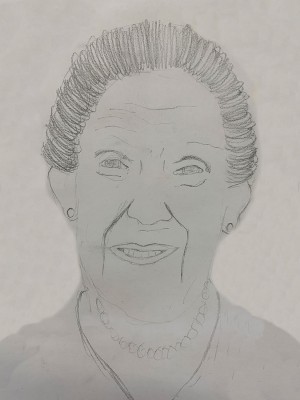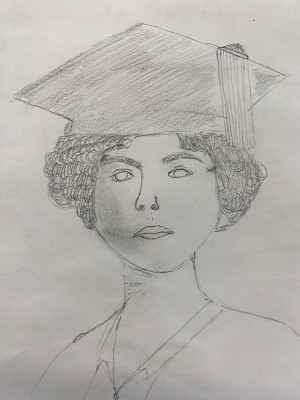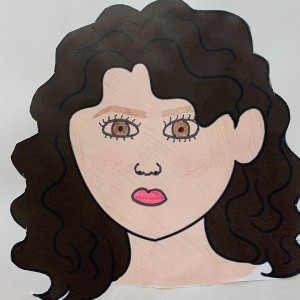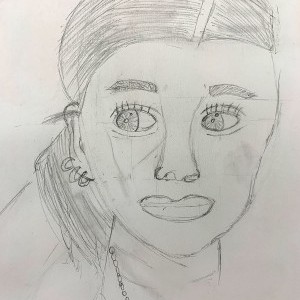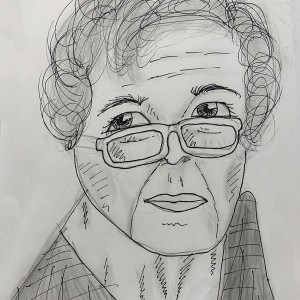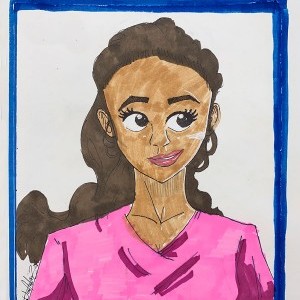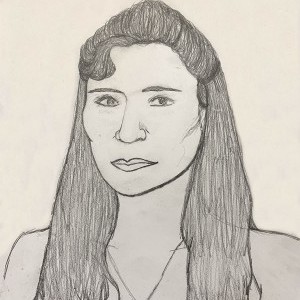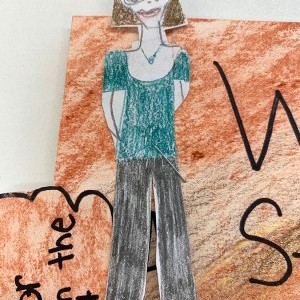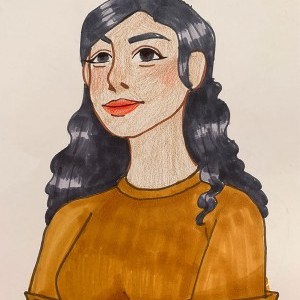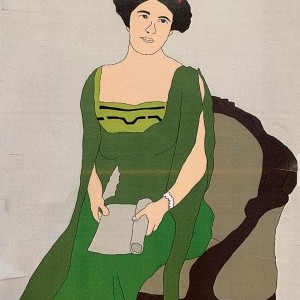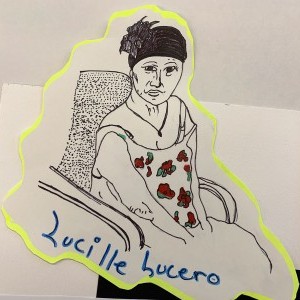Capri Aguinaldo
Kunsmiller Creative Arts Academy | Denver, CO | 11th Grade
Inspirational Family Member
My Great-Aunt Agnes
My great-aunt Agnes Barela, who is now 93 years old, was born on December 10, 1925, which is five years after the passage and ratification of the 19th Amendment. Throughout this interview, my aunt had explained to me her feelings about being able to vote and how she could not put into words all the emotions she felt knowing she was born in a generation soon after this amendment was passed.
Agnes explained that through learning about her history about women's rights before she was born until now, her emotions were overwhelming and she felt that “even though it was just one amendment passed, it was a very large step to something greater in the future.” I asked her to elaborate and she told me that since then, women's rights have expanded into a wide variety of categories. She then gave examples such as when President Kennedy signed the Equal Pay Act into law stopping sex-based wage discrimination between both sexes in the same position. She then reminded me of something she felt that was important to her. In 1973, the Supreme Court declared that the constitution protects a women’s legal right to an abortion, which likely would not have happened without the 19th Amendment. Personally, she told me that she, and people she knew, were never denied the right to vote considering she was born after it was passed and she said she never thought of asking her mother about voting because such topics were never brought up. She then told me how lucky I am to be born in such a generation that is able to do things freely without being shamed or having to suffer consequences for them contrary to what women faced during or before her time.
Aunt Agnes told me that gaining so many rights and being able to vote is such a privilege for her because she can vote for the people who she truly feels she can depend on and trust. People who have the same views and whom she feels are best to run the government. Throughout this interview, I’ve learned many things and she has shown me that I should appreciate what past women have done to be able to gain this right and to take advantage of it, and to vote to express my personal views and opinions on electoral debates.
Throughout the interview, I learned how important it is for everybody to vote. Previously, I did not feel as though my vote would make a big impact or difference. The value of connecting my own family experiences to history has helped me learn the importance of our former times and how they relate to the present day and even how they may impact the future. I realize that voting matters in so many different ways. Voting matters locally so that we as a state get what we feel is right and gain the right person to take care of Denver. Voting matters state wise for Colorado so that Coloradans get what they, or anybody in other states voting, need and voting for who they feel is right to be governor. And lastly, voting federally, is most important since it affects every characteristic of our lives from schools to health care and even our home and life security. Voting in our society is a right that everybody should have. You are standing up for what you believe in, making your voice heard, and deciding how you think the government should be.
Historical Figure I Admire
Emmeline Pankhurst
“I would rather be a rebel than a slave.” – Emmeline Pankhurst was a British militant and organizer of the British women’s suffrage movement who assisted women to gain the right to vote. Born to politically active parents in 1858, Pankhurst was introduced to the Women’s Suffrage movement at the age of 14. She eventually established and became involved with the Women's Franchise League, which advocated universal suffrage for married and unwed women. When that organization fell apart, she tried joining the independent Labour Party, which her socialist friend Keir Hardie had helped found, but she was initially denied the right to join the party by the local branch because of her gender. Emmeline Pankhurst was sent to prison multiple times for protesting for women’s suffrage. Pankhurst’s work ultimately led to the British Parliament granting the right to vote to women over the age of thirty who met certain property requirements later in the year 1918.
Society definitely had different impacts on the women who engaged in the suffrage movement, but no matter their race or class, all women were politically oppressed by not being allowed to vote. Ms. Pankhurst would not allow this oppression to define her, and pushed more for her political beliefs. This went further than her parents could because she had seen for herself how the world was unfair, and it eventually pushed her to help other women in the suffrage movement. Using militant tactics to claim political rights for women, Pankhurst opened a new door for the women’s movement, as she challenged women’s social and sexual inequality. Not only did society impact the way Emmeline Pankhurst thought, but also, it influenced her actions, along with her personal history and background with her family. Most importantly, her parents, Robert and Sophia Goulden, were politically active and unquestionably had a lot of influence on Pankhurst’s political and social beliefs.
What the Project Means to Me
By Pankhurst being as determined as she was to give women the rights they deserved, which included the right to vote, she had integrity and sacrificed her freedom – as when she was incarcerated fighting for what she believed was right. Women in Britain were granted the right to vote, in part because of Emmeline Pankhurst. In fact, she was praised and got a lot of attention for being a role model for activism. She helped women gain limited suffrage in 1918 by founding the Women's Social and Political Union and by using militant tactics to advocate for women’s suffrage.
In conclusion, she was determined, motivated, and inspiring for women around the world. Emmeline Pankhurst’s contribution helped change the course of the lives of all people today. Her activism, her campaigning for social and political change in Britain, didn’t only benefit women in England. Even though she just helped women in Britain and her actions did not grant all women suffrage everywhere, she took a big leap towards permitting voting for all women even outside of Britain.
Explore the Archive
More From This Class
Click on the thumbnails below to view each student's work.Deadline Extended
There's still time to join Women Leading the Way.
Become a part of our storytelling archive. Enroll your class today.
Join the Project

